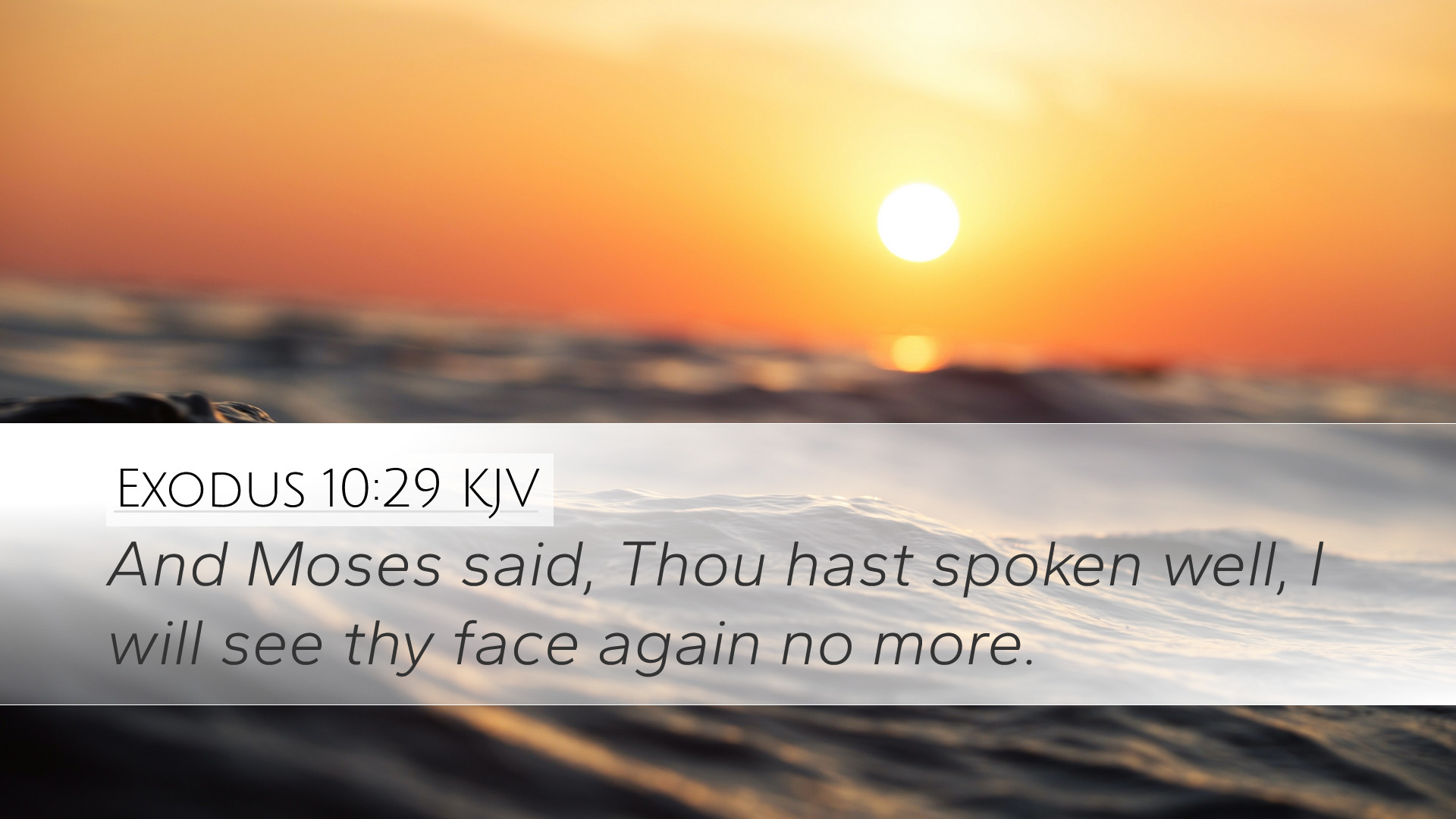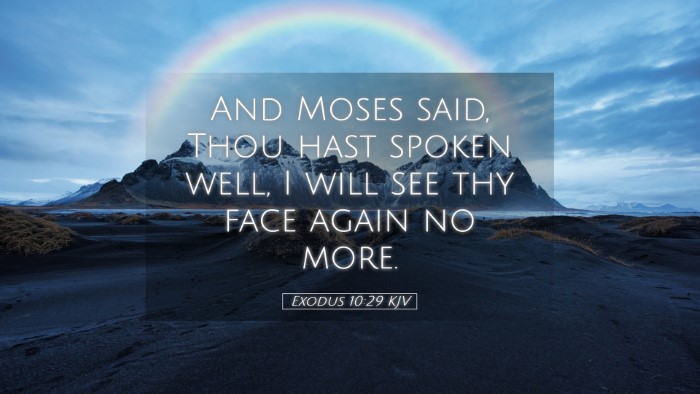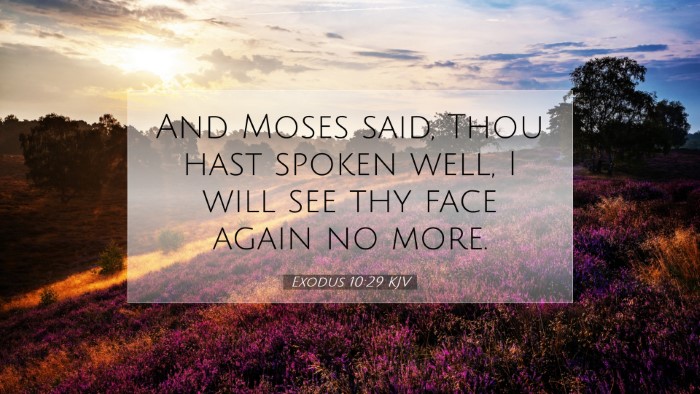Commentary on Exodus 10:29
Verse Context: Exodus 10:29 reads, "And Moses said, Thou hast spoken well; I will see thy face again no more." This verse occurs within the larger narrative of the plagues of Egypt, illustrating the culmination of the tension between Moses and Pharaoh.
Analysis of the Verse
This verse signifies a definitive moment in the confrontation between Moses and Pharaoh. It can be understood on multiple levels—historically, theologically, and practically.
Historical Significance
Moses' declaration to Pharaoh, "I will see thy face again no more," marks an important threshold in his mission. After enduring the plagues, this statement foreshadows the ultimate destruction that will accompany the tenth plague—the death of the firstborn. The phrase indicates Moses’ recognition that Pharaoh's stubbornness and refusal to heed God’s message would lead to irreversible consequences.
Theological Implications
From a theological perspective, this passage illustrates the profound principle of divine judgment and the consequences of disobedience. Matthew Henry emphasizes that God's patience can reach its limit; Pharaoh’s refusal to comply with God’s commands is emblematic of humanity's fallen nature.
Albert Barnes elaborates further on the implications of this moment. He notes that Moses, through the very act of declaring his finality to Pharaoh, embodies God's messenger who stands firm. The rejection of Moses’ message becomes synonymous with the rejection of God Himself, a theme that resonates through the entire narrative.
Practical Applications
For pastors and theologians, this verse serves as a sobering reminder of the seriousness of one's response to God’s call. Adam Clarke points out that true humility before God necessitates obedience. The implications here extend to individual lives today: responding positively to divine instruction is crucial. The firmness of Moses' statement also calls for pastoral reflection on how one addresses resistance to spiritual guidance.
Character Study: Moses and Pharaoh
This verse presents a stark contrast between Moses as an obedient servant of the Lord and Pharaoh as an emblem of rebellion. Moses’ submission to God's will serves as an example for believers today. Conversely, Pharaoh's hardened heart becomes a cautionary symbol of the dangers associated with pride and defiance.
- Moses: Acts decisively in faith, portraying unwavering obedience to God.
- Pharaoh: Represents the archetype of stubbornness against divine authority, culminating in tragedy.
Conclusion
Exodus 10:29 encapsulates a pivotal moment in the Exodus narrative, emphasizing crucial themes of judgment, obedience, and the stark dichotomy of humanity's response to God. Through the insights from the public domain commentaries of great theologians, it becomes clear that this is not merely a historical account but a timeless lesson for all. As modern-day believers reflect on this passage, they are reminded of the gravity of their choices and the importance of responding to God’s entreaties with faith and humility.


